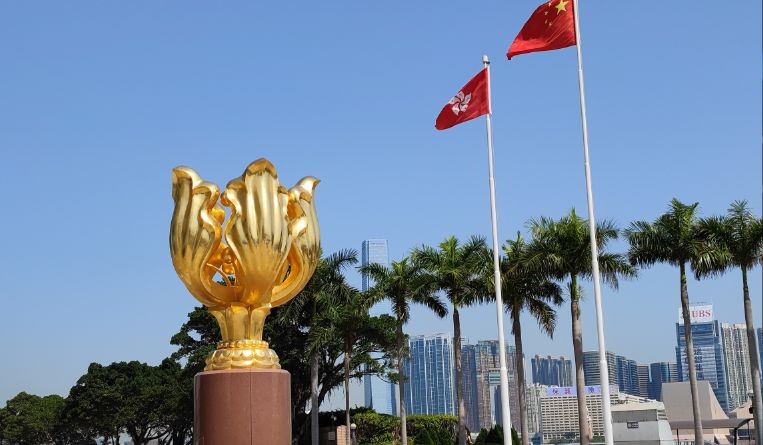Hong Kong legislators have called into question why colonial-era laws remain on the city’s books, and why such laws continue to refer to “the Queen”. Hong Kong was “reunified” with mainland China in 1997.
The Law Reform Commission Secretariat has identified 76 pieces of legislation that need to be adapted, Secretary for Justice Paul Lam told a Legislative Council panel meeting on December 5, 2022, the South China Morning Post reported. Lam told the meeting that the government would take the approach of “doing easy issues first before moving on to harder ones.”
Hong Kong was a British colony and then a dependent territory of the British Empire from 1841 to 1997, aside from a few years during World War II when it was occupied by Japan. Today, Hong Kong is referred to as a Special Administrative Region of the People’s Republic of China.
The meeting was told that seven pieces of legislation have so far been adapted. Fourteen others are set to be incorporated into bill amending or enacting legislation next year, the Post reported.
Following the death of Queen Elizabeth II in September, legislator Maggie Chan said it was “unacceptable” that some of the city’s laws contained phrases that were relics of British rule. Chan cited, in particular, the Crimes Ordinance, in which “Assaults on the Queen” remains an offence. “It is an insult to our constitution. Why can we not remove it from the ordinance? What difficulties are there?”
Lam said that colonial-era terms do not affect the implementation of laws, as the Interpretation and General Clauses Ordinance was designed to deal with such things, providing that any reference to Her Majesty, the Crown, the British Government or the Secretary of State should be considered to be a reference to the authorities of the People’s Republic of China.
- Gregory Glass







